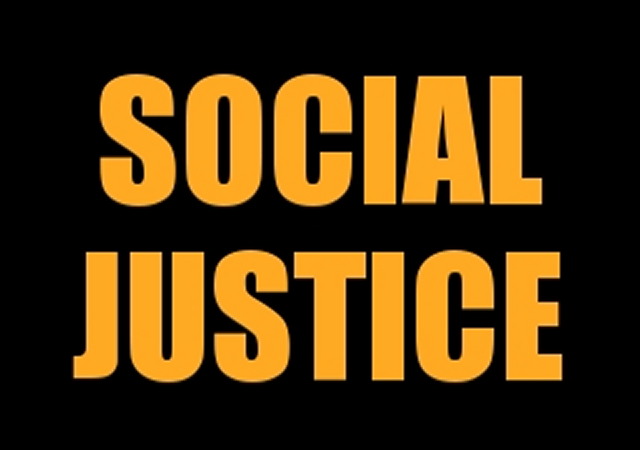Study: ‘Broke-Woke-Stroke’ Bring Down the Value of Higher Education
“The ‘broke-woke-stroke’ triad, according to the authors, describes the ‘corporatization’ of higher education; a campus climate hostile to ideas outside the orthodoxy on race or gender-related issues; and faculty who give students high grades in response to their sensitivity, different academic abilities, or loan debt.”

This is not surprising. Woke college students get their views validated constantly.
Campus Reform reports:
‘Woke’ colleges ‘stroke’ student egos, study argues
A new study reveals a crisis in higher education attributed to expensive tuition, “woke” culture, and universities that lower academic rigor, whether over sympathy for indebted students or social justice.
“‘Undeserved’ Grades or ‘Underserved’ Students?,” published in Higher Education Politics & Economics, presents a professors’-eye view of grade inflation.
Professors Mark Horowitz, Anthony L. Haynor, and Kenneth Kickham shared survey results from over 200 professors at public universities to suggest that, unless universities address the tension between calls for equity and merit, they cannot restore faith in higher education as an institution that educates well-rounded citizens.
Horowitz and Haynor are sociology professors at Seton Hall University, and Kickham is a political science professor at the University of Central Oklahoma.
They begin their argument by exploring the three factors that erode the value of higher education, making “diploma mill” a search term that “appears over half a million times.”
The “broke-woke-stroke” triad, according to the authors, describes the “corporatization” of higher education; a campus climate hostile to ideas outside the orthodoxy on race or gender-related issues; and faculty who give students high grades in response to their sensitivity, different academic abilities, or loan debt.
Data on grade inflation show that the percentage of “A” grades increases by five to six percent every decade. The authors blame “the college-for-all creed.”
“If this view is correct,” they write, “the material factor (‘broke’) is likely the main driver of grade inflation, as cash-strapped universities tap an ever-larger market of students expected to go to college, whatever their preparation or intellectual readiness.”
Survey respondents also perceive grade inflation. 48 percent of respondents “agree that grade inflation is a serious problem,” 33 percent “admit to reducing the rigor of their courses over the years,” and 47 percent “agree that academic standards have declined.”
When respondents diverge, however, there are major differences in political orientation. There is a “stairway pattern” in survey responses, including a question in which “radicals” or “liberals” were more likely than “moderates” to “agree that virtually all students admitted with serious academic deficits can excel in a challenging curricular environment with sufficient academic and university support.”
Donations tax deductible
to the full extent allowed by law.








Comments
Why Are You Still Sending Your Kids to School?: The Case for Helping Them Leave, Chart Their Own Paths, and Prepare for Adulthood.
Author: Boles, Blake
Year: 2020
The Case Against Education: Why the Education System Is a Waste of Time and Money.
Author: Caplan, Bryan
Year: 2018
The Teenage Liberation Handbook (3rd Edition): How to Quit School and Get a Real Life and Education.
Author: Llewellyn, Grace
Year: 2021
Inside American Education: The Decline, The Deception, The Dogmas.
Author: Sowell, Thomas
Year: 1993
Not being snarky; I really want to know: why do you capitalize every word in your comments?
Thanks.
(from Grammerly.com)
“According to most style guides, nouns, pronouns, verbs, adjectives, and adverbs are capitalized in titles of books, articles, and songs. You’d also capitalize the first word and (according to most guides) the last word of a title, regardless of what part of speech they are.”
No offense taken.
They’re just book titles with author and year of publication
No I do not have any financial or other interest in these books, or authors, or publishers
Imho the main value of these books is that they open one’s eyes to a very sane, very logical worldview that all too many of us have never thought about.
– – –
For some perspective, there was a time when the horseless carriage was considered a novelty.
And there was a time when “guitar music” and rock n roll were considered fads that would pass.
Many other examples of how times change.
Nobody used to know how to type, now everyone does.
At one time, if a home had a telephone, that was plenty.
In a sane world, very few Americans would be dealing with “college” as it is currently done.
The focus would be on useful, employable skills. Some of which usually require some kind of formal schooling.
And if you wanna learn about Shakespeare or the War of the Roses, or Aristotle, or anything else, you can read a book. (For free on Lubrivox.org)
Don’t agree?
Don’t have to.
L i b r i v o x
And by the by, how many more schoolchildren in America need to commit suicide, or get murdered, or get systematically bullied
before a few parents wake up and realize that school is not what it once was.
And that maybe just maybe America’s schools really aren’t healthy places for children.
I apologize. I didn’t notice they were titles. I had a long day yesterday.
👍 I like reading your comments 🫡
“unless universities address the tension between calls for equity and merit”
They’re diametrically opposite goals, an always hav been… and any “big-brain” who is just now figuring that out needs to be selling insurance or used cars, not teaching young adults.